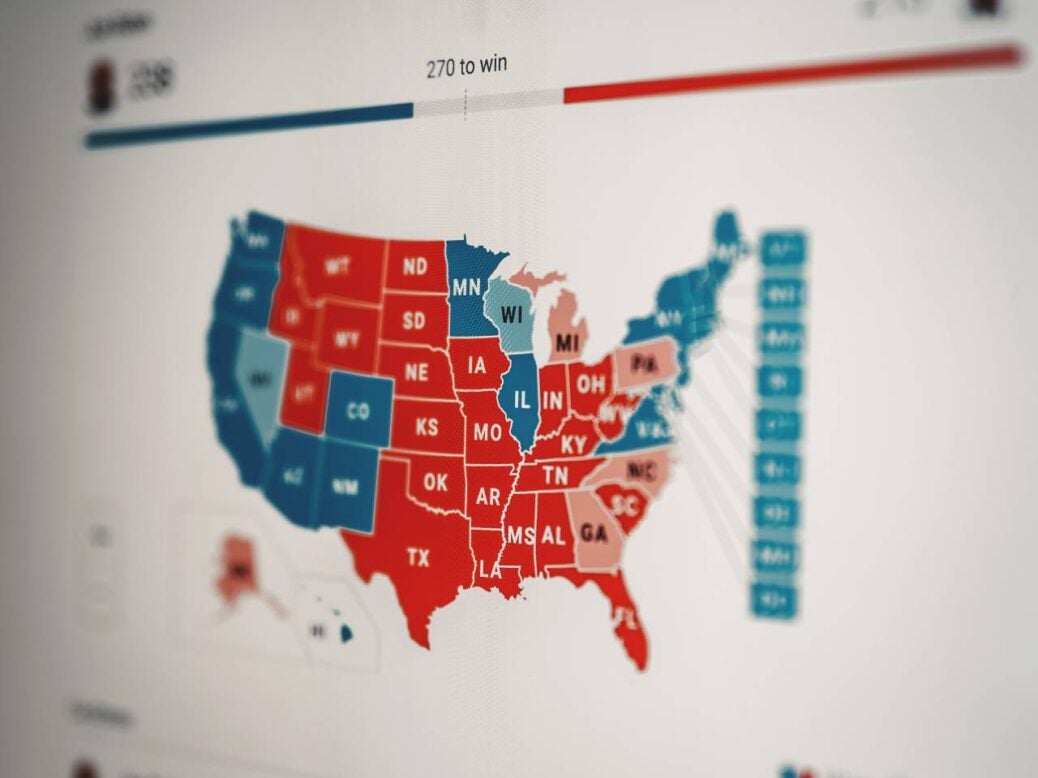
Some will regret Trump’s departure from the White House, whilst others breathe a sigh of relief. But what does the arrival of President Biden hold for the world? By David Landsman
It’s amazing how quickly events – and people – who have dominated the news agenda can fade into history. For four years we got used to waking up to a Tweet which set the day’s agenda. Now once again we can remember a time when Donald Trump wasn’t always top of mind. Unless of course you were there cheering at the Republican CPAC rally in Florida a few days ago. ‘Who knows?’ said The Donald about 2024. I think we do.
Some will regret not just Trump’s departure from the White House but also the way in which the riots at the Capitol marred the positive aspects of a mixed legacy, from a strong (pre-Covid) economy to progress in the Middle East which would in other circumstances have made him a credible candidate for the Nobel Peace Prize. Others will just be breathing a sigh of relief, some hoping to return to ‘business as usual’, others to move on in a more radical direction. Hold tight.
A return to ‘life before Trump’
I’ll leave my American friends to contemplate their own fate. But what does the arrival of President Biden hold for the world? There’s no shortage of instant commentary. I wanted to try to sum it up in a sentence, so here goes.
From what you read, breathlessly, the 46th President will be good for the ‘multilateral rules-based order’ and for trans-atlanticism (ie the US and Europe working closely together, primarily through NATO), less so for the growth of Europe as a distinctive power, and bad news for autocrats (not that everyone agrees who goes in that bucket).
Or, to use an even shorter sentence, that Biden heralds a return to the status quo ante Trump. The US is re-joining the Paris Climate Change Treaty, it’s going to support the WHO in the battle against Covid and the administration has – repeatedly – told allies it wants to work with them.
But the big problem with all this is that 2021 is not 2016. If George H W Bush didn’t (quite) stick to his ‘no new taxes’ promise in 1988, Trump did manage to honour his for ‘no new wars’. There’s unlikely to be a return to Clinton or even Obama-era activism: domestic politics, scarred by Covid and the divisions of the past four years, won’t bear it.
Foreign policy
Allies may welcome Biden but they and their publics won’t be rushing to support regime change around the world. We’ve seen enough disruption over the last year to last a lifetime, but there’s a glimmer of hope that there may be fewer ‘unforced errors’ of US foreign policy over the next four years.
There are two big dilemmas which will play into decisions on specific countries and issues.
First how much will ‘working with allies’ mean compromising with their agendas? For example, France’s President Macron may welcome Biden’s multilateralism but will not want to Europe to tuck in behind a US lead. And while Germany is naturally more comfortable with transatlanticism, its interests in China and Russia will make it unwilling to follow a tougher US approach.
The second dilemma for Biden may be to reconcile his desire to find allies with some squeamishness over the ‘values’ of some of those he will need to work with, particularly perhaps in Asia. Reassuringly, realism is likely to prevail. The creation of a D10 – the ‘great democracies’ including the G7, India, Australia and South Korea – hosted by UK Prime Minister Boris Johnson and with Joe Biden’s blessing – is undoubtedly a good thing.
What’s the upshot? We should expect strong and vocal US leadership on files which (internationally if not always domestically) are ‘easier’, such as climate change and health, and more caution on the ‘hot’ regional issues.
Business
But this won’t necessarily let business off the hook. If military action is less of an option, we can expect to see more use of economic sanctions as a way in which the international community can ‘do something’ at less risk.
The world of sanctions has changed too in recent years. There’s been a greater tendency to impose what the experts like to call ‘smart sanctions’ targeted at individuals responsible for whatever the problem seems to be.
The US ‘Magnitsky Acts’, now emulated by a number of Western countries, have established targeted sanctions as a key instrument of foreign policy. While ‘smart sanctions’ are undoubtedly better for a country’s people and broader economy, they can make dealing with specific businesses legally or at least reputationally prohibitive, so it’s important to keep an eye out for where they might land next.
‘New president, old challenges’
The reality is that Biden will be building on both Obama and Trump. Obama’s pivot to Asia will remain a key driver, sharpened by the strong bipartisan consensus on the need to contain the ‘threat’ from China.
In the Middle East, capitalising on Trump’s successes in promoting rapprochement between Israel and the Gulf States may be easier to pull off than a bold American gesture towards Iran, in the aftermath of the killing Mohsen Fakhrizadeh in late 2020 and Tehran’s latest tough words on its nuclear programme.
Russia may prove one of the toughest conundrums: it is inescapably part of the solution to many of Washington’s global challenges, but a positive modus vivendi may still prove to be beyond both sides. In short, definitely a new President, but still many of the old challenges.
David Landsman is Chairman of Cerebra Global Strategy. He is a former British Ambassador and senior executive. His articles reflect a personal view.
Read more:
Tom Steyer on Biden, taxes and changing Wall Street
Matthew Goodwin: Why the ‘deck looks stacked’ against Trump in November
Matthew Goodwin: Why political change in 2021 might be taxing for some








